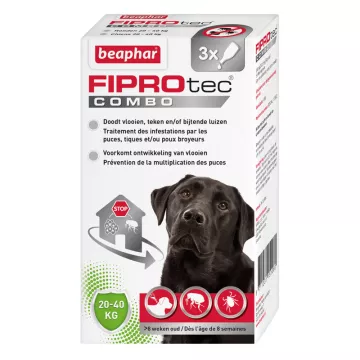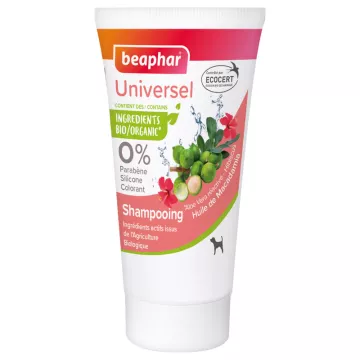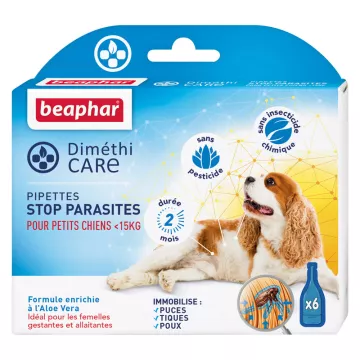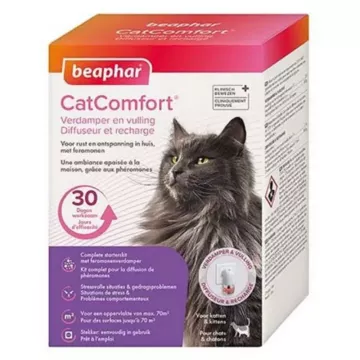




What is basic veterinary care for a pet?
Basic veterinary care for a pet includes a number of preventive measures and interventions that are essential to ensure the animal's health and well-being. Adherence to the vaccination schedule is crucial, as it protects against serious diseases such as rabies, coryza in cats and parvovirosis in dogs. Regular deworming is also essential to prevent infestations of internal parasites, which can seriously damage a pet's health.
Annual veterinary check-ups are recommended, and may include blood tests to detect any functional abnormalities, such as kidney or liver problems, which are common in older animals. In addition, maintaining proper oral hygiene is essential, as periodontal disease is very common and can affect various organs via the bloodstream.
How can I identify signs of disease in animals?
Identifying signs of disease in animals is crucial to their well-being, and may require immediate veterinary attention. Changes in eating habits or general behavior, such as increased lethargy or unusual aggressiveness, may indicate an underlying problem. Physical symptoms such as coughing, diarrhea, vomiting or wheezing are also warning signs. It's important to monitor the animal's physical appearance, including any changes in skin, coat, eyes or ears, which could signal an infection or allergy.
When should I take my pet to the vet?
It's advisable to take your pet to the vet at least once a year for a routine check-up. However, if you observe alarming symptoms such as reduced appetite, changes in urinary behavior, repeated vomiting, or signs of pain such as whining or difficulty moving, it's imperative to consult a vet immediately. For older animals or those with pre-existing medical conditions, more frequent visits may be necessary.
How can the most common pet illnesses be prevented?
Preventing disease in pets relies mainly on vaccination and parasite prevention. Vaccinating your pet according to your veterinarian's recommendations is essential. Similarly, regular use of anti-parasite products prevents flea, tick and worm infestations. A balanced diet, adapted to your pet's species, age and state of health, also helps strengthen its immune system. Finally, regular exercise is essential to keep the animal in good physical and mental shape.
Are there any specializations in veterinary medicine?
Veterinary medicine includes several specializations to meet the diverse care needs of animals. Specialists in veterinary surgery, dermatology, cardiology or neurology offer advanced care for specific conditions. There are also more advanced areas of expertise, such as veterinary oncology for cancer treatment, or veterinary behaviorology for behavioral disorders. Choosing a specialized veterinarian can be beneficial for cases requiring special skills or in-depth treatment.
How important is sterilization for the health of pets?
Sterilization plays a crucial role in preventing a number of health problems in pets, while helping to reduce the number of strays. In females, sterilization prevents uterine infections and significantly reduces the risk of udder cancer. For males, it reduces the risk of testicular cancer and hormone-related behaviors such as aggression and territorial marking. What's more, neutering can contribute to a longer, healthier life, by preventing certain reproductive diseases.
How do I choose the right food for my pet?
Choosing the right food for your pet is essential for its health. It's important to select foods suited to your pet's age, weight, physical activity and any medical conditions it may have. High-quality foods containing an adequate balance of proteins, fats and carbohydrates, as well as the necessary vitamins and minerals, are to be preferred. We recommend consulting a veterinarian to assess your pet's specific needs and adjust its diet accordingly.
What are the advantages of pet health insurance?
Pet health insurance can offer peace of mind by covering veterinary expenses, which can be considerable in the event of illness or accident. These policies can cover or reimburse the cost of regular consultations, emergencies, surgical treatments, prescribed medication, and sometimes even alternative therapies. Choosing the right insurance for your pet's needs can help you manage the cost of veterinary care without compromising the quality of treatment received.
How to manage anxiety and stress in pets?
Managinganxiety and stress in pets is crucial to their well-being. Changes in the environment, such as moving house, the arrival of a new pet or loud noises (fireworks, thunderstorms), can induce stress and anxiety in pets. It's essential to provide a stable, secure environment, with consistent daily routines. Techniques such as behavioral therapy, soothing pheromones or even veterinary-prescribed medication can also be used to help manage your pet's anxiety.
How important is dental care for pets?
Dental care is an essential component of preventive veterinary care. Poor oral health can lead to periodontal disease, which is associated with more serious complications, such as heart or kidney infections. Regular brushing of your pet's teeth, the use of toys and foods designed to help reduce plaque and tartar, and professional dental cleanings are recommended to maintain your pet's dental health and prevent future disease.